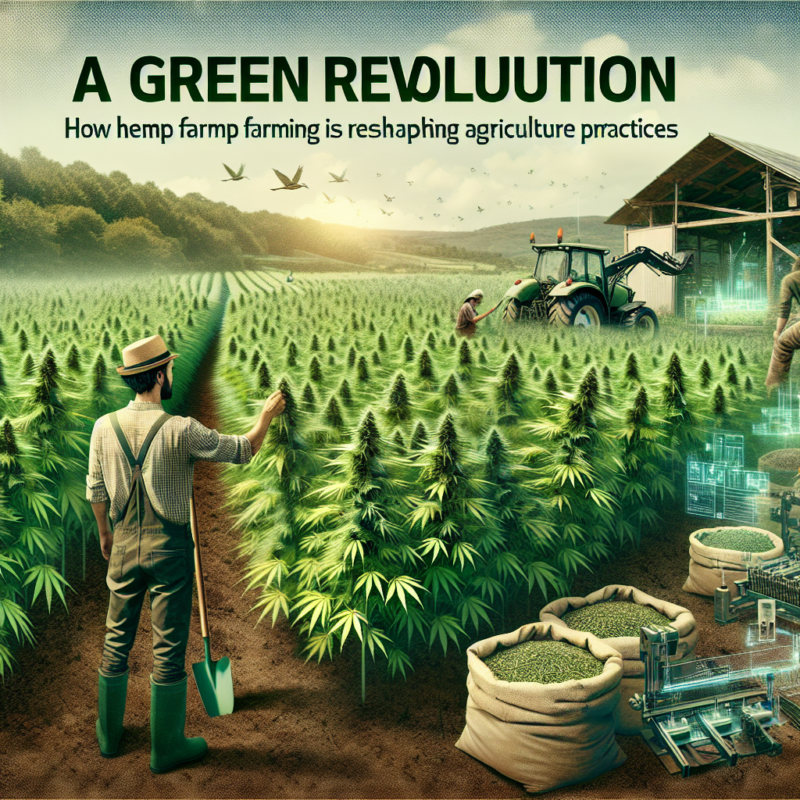Introduction
In recent years, hemp farming has gained significant attention as a sustainable and eco-friendly alternative to traditional agriculture practices. Hemp, a versatile plant with a wide range of uses, has the potential to revolutionize the way we produce food, fiber, and fuel. This article explores how hemp farming is reshaping agriculture practices and contributing to a greener future.
The Benefits of Hemp Farming
Hemp is a highly sustainable crop that requires minimal water, pesticides, and fertilizers to grow. Unlike many conventional crops, hemp can thrive in diverse climates and soil types, making it a versatile and resilient option for farmers. Hemp plants also have deep roots that help prevent soil erosion and improve soil health.
Furthermore, hemp is a fast-growing crop that can be harvested in as little as 3-4 months, allowing farmers to quickly replenish their fields and maximize their yields. Hemp farming also has the potential to create new revenue streams for farmers, as the plant can be used to produce a wide range of products, including textiles, paper, biofuels, and CBD products.
Sustainable Practices in Hemp Farming
One of the key principles of hemp farming is sustainability. Hemp plants are naturally resistant to pests and diseases, reducing the need for harmful chemical pesticides. Additionally, hemp has a deep root system that helps improve soil structure and sequester carbon from the atmosphere, making it a valuable tool in combating climate change.
Many hemp farmers also practice regenerative agriculture, which focuses on building healthy soil, increasing biodiversity, and promoting the long-term sustainability of farming practices. By incorporating cover cropping, crop rotation, and no-till farming techniques, hemp farmers can reduce their environmental impact and improve the health of their land.
The Impact of Hemp Farming on Agriculture Practices
Hemp farming is not only reshaping the way we grow crops but also challenging traditional agriculture practices. By demonstrating the benefits of sustainable farming methods, hemp farmers are inspiring others in the industry to adopt more eco-friendly and ethical practices.
As consumer demand for sustainable products continues to grow, hemp farming is paving the way for a greener and more ethical food and fiber industry. By supporting hemp farmers and investing in sustainable agriculture practices, we can create a more resilient and environmentally friendly food system for future generations.
Conclusion
In conclusion, hemp farming is playing a crucial role in reshaping agriculture practices and promoting a greener, more sustainable future. By harnessing the power of this versatile plant, we have the opportunity to revolutionize the way we produce food, fiber, and fuel. It is essential that we continue to support hemp farmers and invest in sustainable agriculture practices to create a more resilient and environmentally friendly food system for generations to come.
FAQs
Q: Is hemp farming legal?
A: In many countries, including the United States and Canada, hemp farming is legal under certain regulations. It is important to check the local laws and regulations regarding hemp farming in your area.
Q: What products can be made from hemp?
A: Hemp can be used to produce a wide range of products, including textiles, paper, biofuels, CBD products, and even sustainable building materials.
Q: How does hemp farming help the environment?
A: Hemp farming is beneficial for the environment as it requires minimal water, pesticides, and fertilizers to grow. Hemp plants also help improve soil health, sequester carbon, and reduce the need for harmful chemical pesticides.

